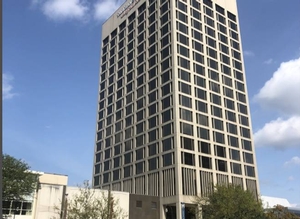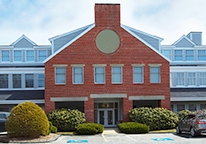Articles
Massachusetts Estate Tax Versus the Capital Gains Tax (To Gift or Not To Gift)
By Richard C. Barry, Jr. on November 13, 2020Both the federal and Massachusetts estate taxes are based on the value of a person’s assets on his or her date of death. Both taxes provide an unlimited marital deduction, which means that all assets passing to a surviving spouse are not subject to the estate tax. Under the federal estate tax, each person also has an exemption which is presently $11,580,000. A person’s estate would have to exceed $11,580,000 before it would become subject to the federal estate tax. Consequently, the federal estate tax has become irrelevant for most people.
In contrast, the Massachusetts estate tax is still applicable to many estates. The threshold for an estate to be subject to the Massachusetts estate tax is $1,000,000, and if an estate exceeds $1,000,000, the tax is calculated on the entire estate, not just the amount which exceeds $1,000,000. The tax does not have a flat rate, but imposes graduated rates which increase as the size of the estate increases. There are 20 brackets, with the highest tax bracket of 16% for the portion of an estate which exceeds $10,040,000.
In addition to the federal estate tax, there is also a federal gift tax. However, the federal exemption of $11,580,000 is also available to be applied to lifetime gifts, which means that a person could make gifts which total $11,580,000 and still not pay any federal gift tax. There is no Massachusetts gift tax.
The combination of a high federal gift and estate tax exemption and no Massachusetts gift tax means that a person could make gifts prior to his or her death to avoid or reduce the impact of the Massachusetts estate tax. To illustrate, Father has an estate which has a total value of $2,000,000. Included in the $2,000,000 is Father’s home, which has a value of $500,000. The Massachusetts estate tax on an estate of $2,000,000 is $99,600. Father wishes to reduce the Massachusetts estate tax and determines that he could give his house to Son, who will allow him to continue to live there. Father’s taxable estate would then be $1,500,000, and the Massachusetts estate tax would be $64,400, resulting in a tax savings of $35,200.
At first glance, this strategy seems to make a lot of sense. However, the above analysis has ignored the capital gains tax. Father bought the home four decades ago for $50,000, which is his cost basis for determining any potential capital gain. When a person (donor) makes a gift of property to a donee, the donor’s cost basis in the property is also transferred to the donee. Thus, Son’s cost basis in the house will also be $50,000. Son has his own home, and after Father dies he intends to sell the house that belonged to Father. If he sells it for $500,000, he will have a gain of $450,000. The federal capital gains tax (20%) on $450,000 will be $90,000, and the Massachusetts capital gains tax (5%) will be $22,500, for a total of $112,500.
By gifting the property, the opportunity to step up the cost basis of the property was lost. The tax law provides that when property is inherited and included in the decedent’s taxable estate, its cost basis gets stepped up to its fair market value on the decedent’s date of death. Returning to our example, if Father retained ownership of the house until he died, Son’s cost basis would be $500,000, and if he sells it for $500,000 he will have no capital gain and will not pay any capital gains tax. Even though Father’s estate did not owe any federal estate tax due to the $11,580,000 exemption, the house still gets a stepped-up cost basis for determining the federal capital gain tax. Gifting the property resulted in capital gain taxes of $112,500 which exceeds the Massachusetts estate savings of $35,200 by $77,300. In this case, it would have been smarter for Father to hold onto the house until his death and pay the Massachusetts estate tax in regard to the house.
The analysis described above applies not only to real estate, but also to all assets subject to capital gain tax, such as stocks. There are many situations where it will still be prudent to gift assets to avoid the Massachusetts estate tax. The asset may have a high cost basis in relation to its value, so the step-up is not important. If Father was giving son a rental property or a vacation home which Son has no intention of selling, then avoiding the Massachusetts estate tax may have a higher priority.
Before making a gift of any assets to avoid the Massachusetts estate tax, it is important to analyze the potential capital gains tax impact of that gift. Sometimes, it is best not to gift.
©2020. This material is intended to offer general information to clients and potential clients of the firm, which information is current to the best of our knowledge on the date indicated below. The information is general and should not be treated as specific legal advice applicable to a particular situation. Fletcher Tilton PC assumes no responsibility for any individual’s reliance on the information disseminated unless, of course, that reliance is as a result of the firm’s specific recommendation made to a client as part of our representation of the client. Please note that changes in the law occur and that information contained herein may need to be reverified from time to time to ensure it is still current. This information was last updated November 2020.
In contrast, the Massachusetts estate tax is still applicable to many estates. The threshold for an estate to be subject to the Massachusetts estate tax is $1,000,000, and if an estate exceeds $1,000,000, the tax is calculated on the entire estate, not just the amount which exceeds $1,000,000. The tax does not have a flat rate, but imposes graduated rates which increase as the size of the estate increases. There are 20 brackets, with the highest tax bracket of 16% for the portion of an estate which exceeds $10,040,000.
In addition to the federal estate tax, there is also a federal gift tax. However, the federal exemption of $11,580,000 is also available to be applied to lifetime gifts, which means that a person could make gifts which total $11,580,000 and still not pay any federal gift tax. There is no Massachusetts gift tax.
The combination of a high federal gift and estate tax exemption and no Massachusetts gift tax means that a person could make gifts prior to his or her death to avoid or reduce the impact of the Massachusetts estate tax. To illustrate, Father has an estate which has a total value of $2,000,000. Included in the $2,000,000 is Father’s home, which has a value of $500,000. The Massachusetts estate tax on an estate of $2,000,000 is $99,600. Father wishes to reduce the Massachusetts estate tax and determines that he could give his house to Son, who will allow him to continue to live there. Father’s taxable estate would then be $1,500,000, and the Massachusetts estate tax would be $64,400, resulting in a tax savings of $35,200.
At first glance, this strategy seems to make a lot of sense. However, the above analysis has ignored the capital gains tax. Father bought the home four decades ago for $50,000, which is his cost basis for determining any potential capital gain. When a person (donor) makes a gift of property to a donee, the donor’s cost basis in the property is also transferred to the donee. Thus, Son’s cost basis in the house will also be $50,000. Son has his own home, and after Father dies he intends to sell the house that belonged to Father. If he sells it for $500,000, he will have a gain of $450,000. The federal capital gains tax (20%) on $450,000 will be $90,000, and the Massachusetts capital gains tax (5%) will be $22,500, for a total of $112,500.
By gifting the property, the opportunity to step up the cost basis of the property was lost. The tax law provides that when property is inherited and included in the decedent’s taxable estate, its cost basis gets stepped up to its fair market value on the decedent’s date of death. Returning to our example, if Father retained ownership of the house until he died, Son’s cost basis would be $500,000, and if he sells it for $500,000 he will have no capital gain and will not pay any capital gains tax. Even though Father’s estate did not owe any federal estate tax due to the $11,580,000 exemption, the house still gets a stepped-up cost basis for determining the federal capital gain tax. Gifting the property resulted in capital gain taxes of $112,500 which exceeds the Massachusetts estate savings of $35,200 by $77,300. In this case, it would have been smarter for Father to hold onto the house until his death and pay the Massachusetts estate tax in regard to the house.
The analysis described above applies not only to real estate, but also to all assets subject to capital gain tax, such as stocks. There are many situations where it will still be prudent to gift assets to avoid the Massachusetts estate tax. The asset may have a high cost basis in relation to its value, so the step-up is not important. If Father was giving son a rental property or a vacation home which Son has no intention of selling, then avoiding the Massachusetts estate tax may have a higher priority.
Before making a gift of any assets to avoid the Massachusetts estate tax, it is important to analyze the potential capital gains tax impact of that gift. Sometimes, it is best not to gift.
©2020. This material is intended to offer general information to clients and potential clients of the firm, which information is current to the best of our knowledge on the date indicated below. The information is general and should not be treated as specific legal advice applicable to a particular situation. Fletcher Tilton PC assumes no responsibility for any individual’s reliance on the information disseminated unless, of course, that reliance is as a result of the firm’s specific recommendation made to a client as part of our representation of the client. Please note that changes in the law occur and that information contained herein may need to be reverified from time to time to ensure it is still current. This information was last updated November 2020.

















